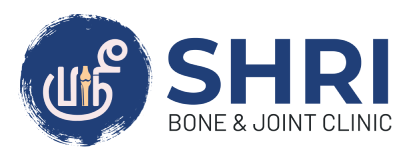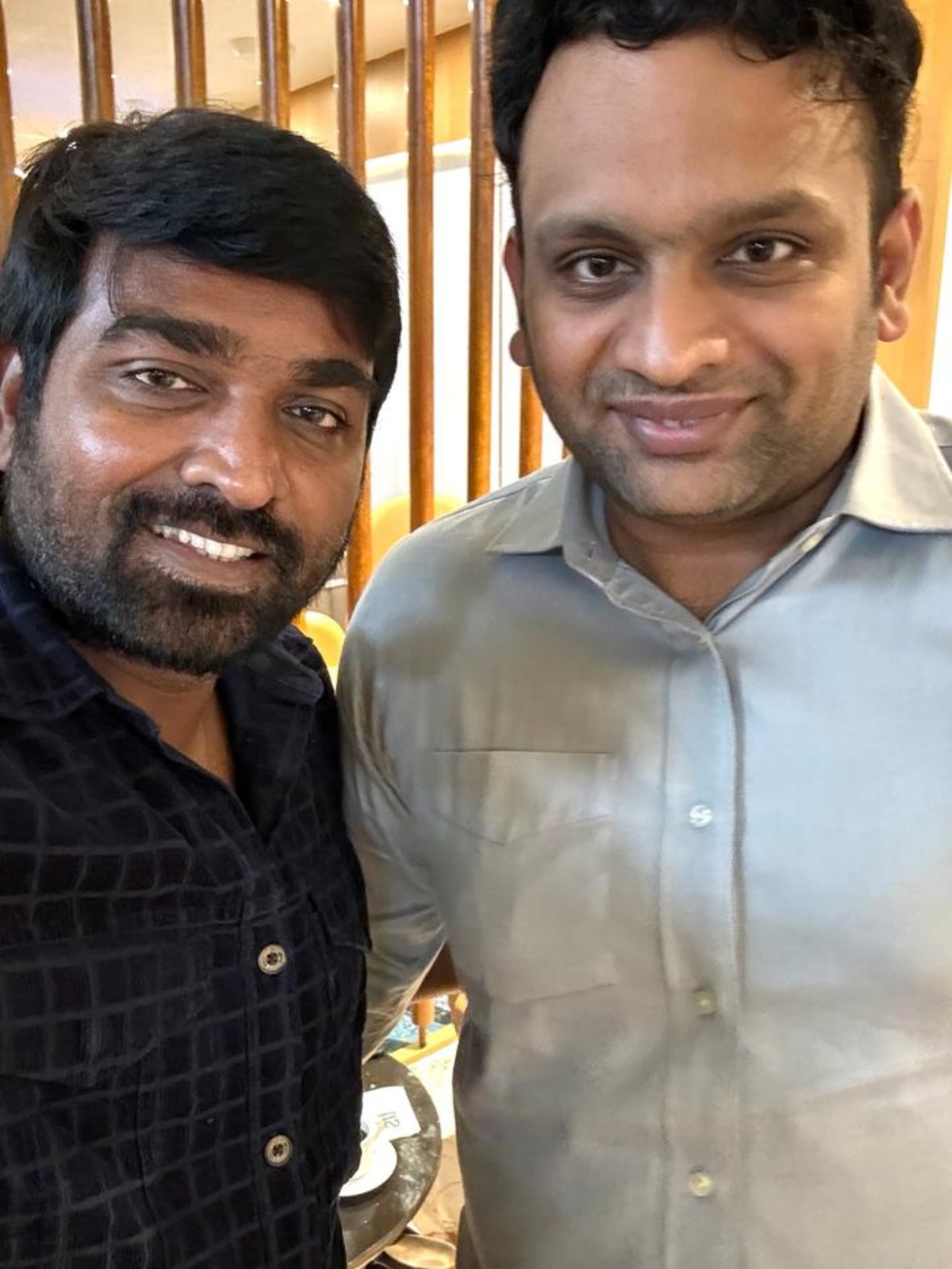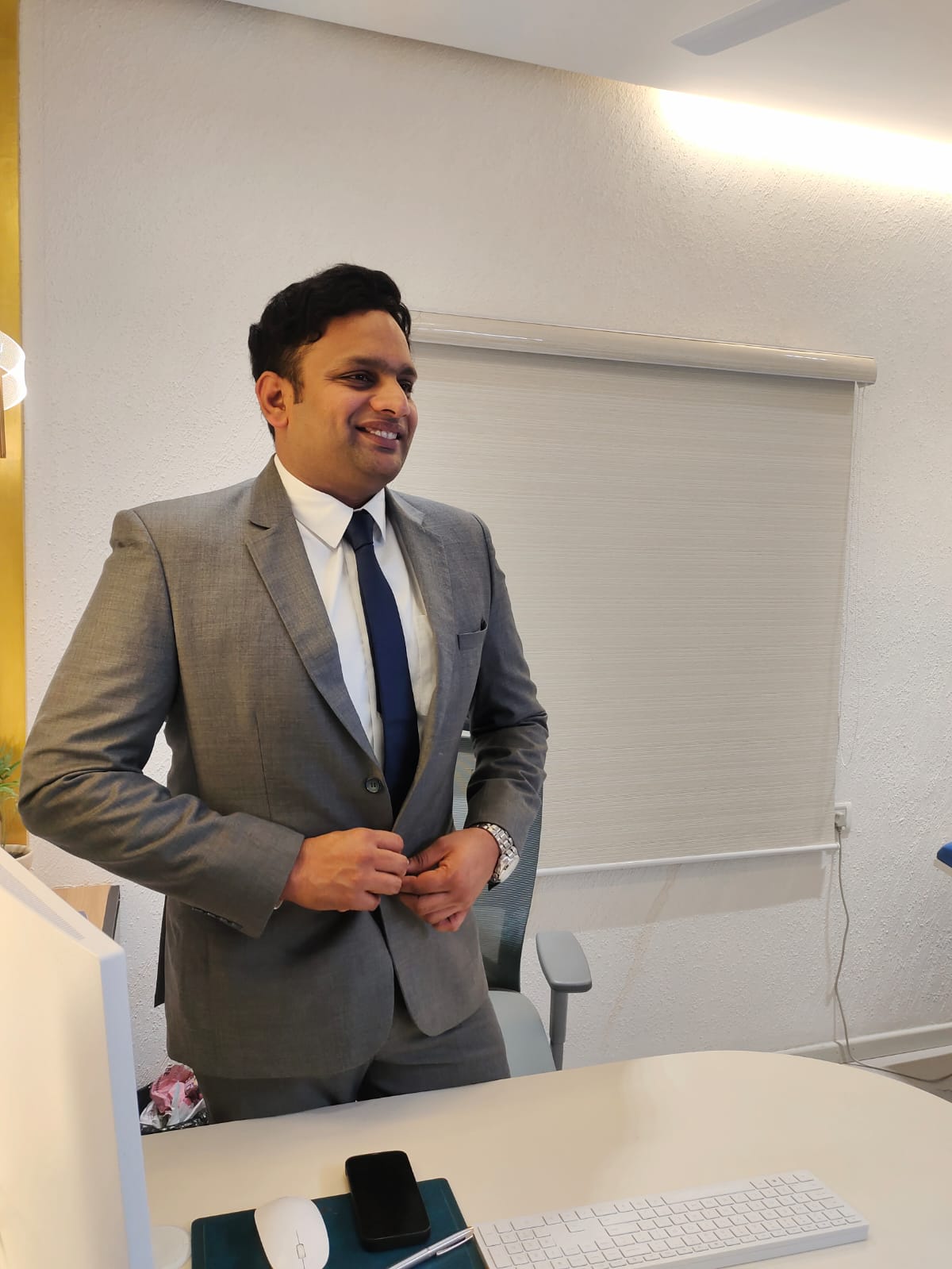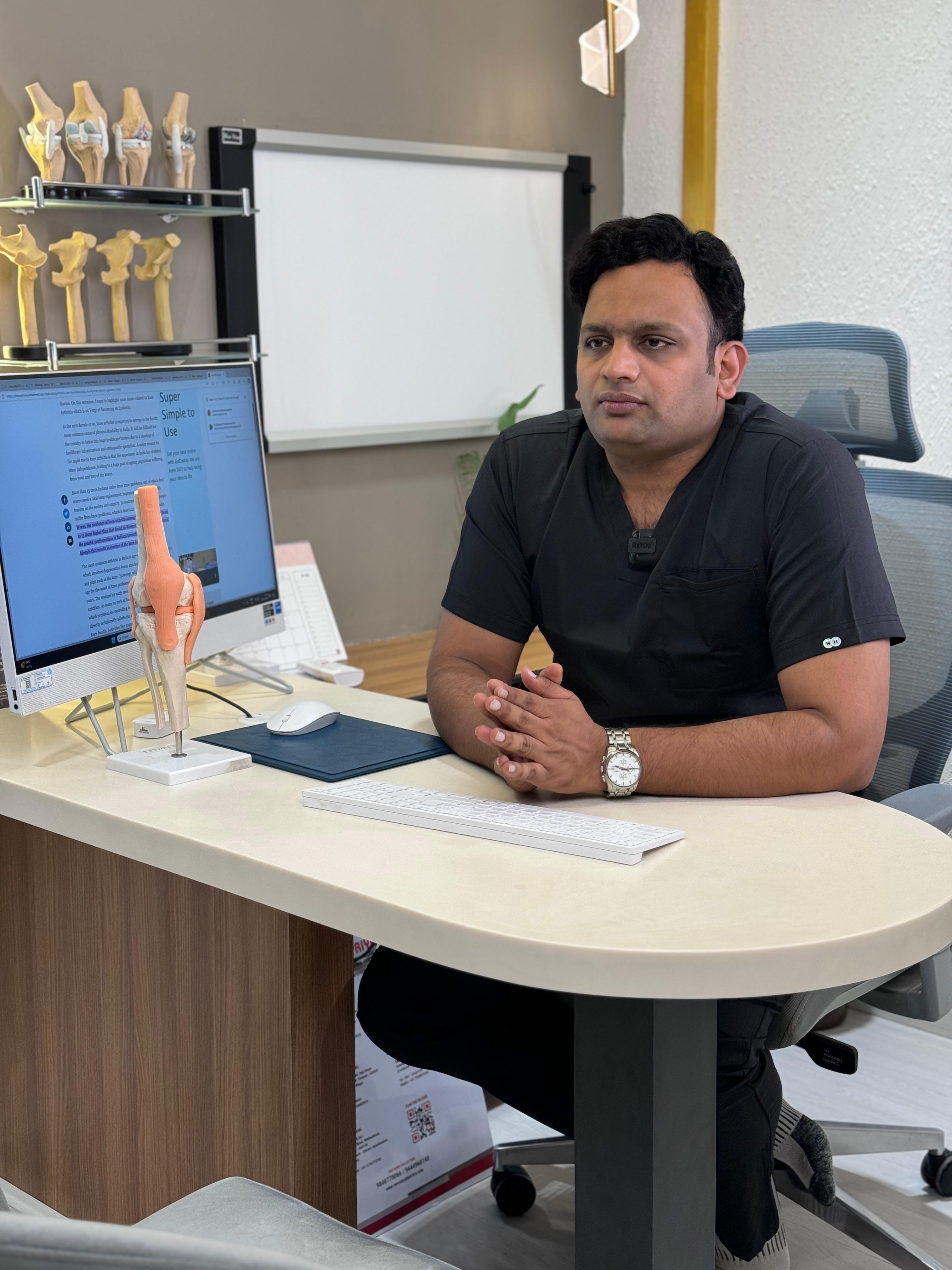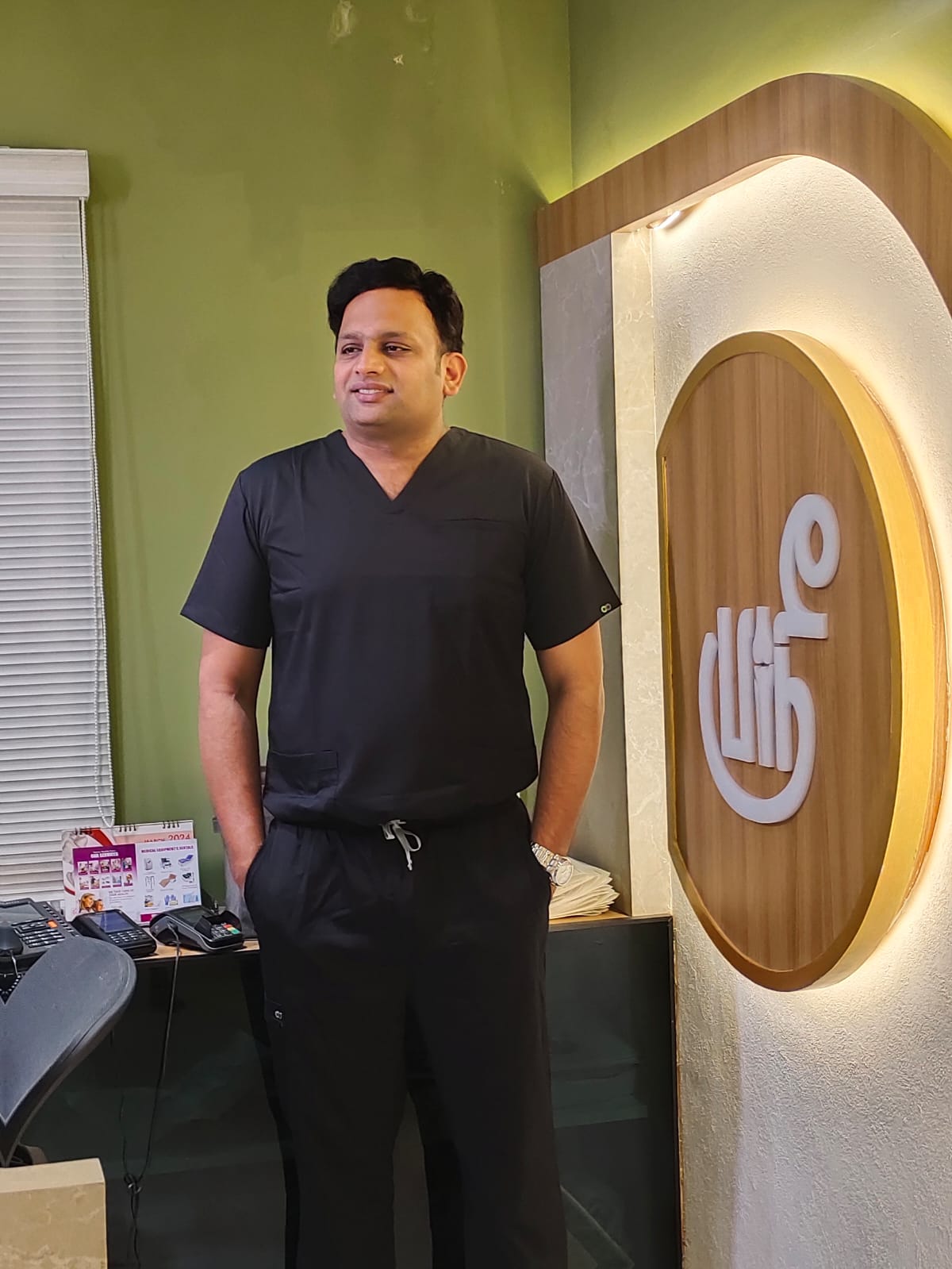What is a discectomy?
A discectomy is a surgical procedure aimed at removing part or all of an intervertebral disk from the spine. These disks are the cushion-like pads nestled between the vertebrae, serving as the spine’s shock absorbers. The surgery is typically performed when a disk herniates, meaning it tears and some of its inner gel-like substance leaks out, causing pain by pressing on nearby nerves. While many people with a herniated disk improve with nonsurgical treatments, a discectomy may be necessary if symptoms persist or worsen, affecting the patient’s quality of life.
Why is a discectomy performed?
A discectomy is primarily performed to relieve the pressure a herniated disk places on a spinal nerve, which can cause intense pain, numbness, or weakness along the nerve’s pathway in the arm or leg. The surgery is considered when nonsurgical treatments, such as physical therapy, medications, or epidural injections, fail to alleviate these symptoms after a considerable period, typically 6 to 12 weeks.
It is also indicated for patients who experience difficulty standing or walking due to nerve weakness or if conservative treatments do not improve symptoms and the quality of life is significantly affected. In some cases, it may be necessary to address other conditions, such as a hardened and shrunken disk, infection, a large disk fragment pressing on nerves, or a tumor on the disk.
What are the symptoms that might require a discectomy?
Symptoms that might necessitate a discectomy include severe back pain, numbness, and difficulty moving, which are typically associated with a herniated disk. The procedure is considered when these symptoms are severe enough to interfere with daily tasks and if there is severe weakness in the muscles of the arm, lower leg, or buttocks.
Additionally, if there is sciatica, characterized by pain spreading into the buttocks or legs, or similar symptoms in the arms due to nerve compression, a discectomy may be recommended. This surgery is usually advised only after nonsurgical treatments like NSAIDs, epidural steroid injections, and physical therapy have not provided relief.
How is a discectomy different from other spine surgeries?
A discectomy is a surgical procedure specifically designed to remove a herniated disc that is pressing on a spinal nerve and causing pain. It differs from other spine surgeries like laminectomy, which involves removing part of the vertebra called the lamina to relieve pressure on the spinal cord or nerves; spinal fusion, which fuses two or more vertebrae together to stabilize the spine; and disc replacement, where a damaged disc is replaced with an artificial one.
Discectomies are often performed as minimally invasive surgeries, such as microdiscectomies, which use smaller incisions and cause less damage to surrounding tissues compared to traditional open discectomies. Each type of surgery is tailored to treat specific spinal conditions and the choice depends on the patient’s unique situation and the underlying cause of their back pain.
What are the different types of discectomy procedures?
Discectomy procedures vary mainly in terms of the surgical approach and the technology used. The common types include:
Open/Standard Discectomy (SD): This traditional form involves a larger incision, allowing the surgeon to have a direct view of and access to the affected disk. The back muscles are moved aside to operate on the disk.
Minimally Invasive Surgery (MIS) Diskectomy: In contrast to SD, MIS involves a smaller incision and the use of dilators to tunnel through muscles. Special instruments like an endoscope enable the surgeon to operate in a smaller space. This category includes micro-endoscopic discectomy (MED) and complete endoscopic discectomy (FE), which cause less tissue damage and may lead to quicker recovery.
Another type is the Anterior Cervical Discectomy and Fusion (ACDF), which is performed on the neck (cervical spine). The surgeon approaches the damaged disk from the front of the neck, removes it, and then performs a spinal fusion to provide stability.
Microdiscectomy is a specific minimally invasive procedure that uses an operating microscope to illuminate and magnify the surgical field. This allows for a very small incision and minimal adjacent tissue damage. These procedures are tailored to the patient’s specific condition and the location of the herniated disk, with lumbar discectomies being more common than cervical ones.
How do you prepare for a discectomy?
To prepare for a discectomy, patients typically consult their healthcare provider, often a spine specialist or orthopedic surgeon, to discuss the procedure and any necessary preoperative steps. Preparation may include stopping certain medications, especially blood thinners, fasting for a specific period before the surgery, and arranging transportation to and from the hospital due to the effects of anesthesia.
Additionally, patients might need to undergo imaging tests like MRI or CT scans for surgical planning and may be advised to refrain from eating and drinking for a certain amount of time before the procedure. It is crucial to follow all the instructions provided by the surgeon to ensure a safe surgery and optimal recovery.
What happens during a discectomy procedure?
During a discectomy procedure, the patient is typically under general anesthesia. The surgeon begins by making a small incision near the affected disc, which has been pre-identified using imaging techniques like MRI or CT scans. Muscles and other tissues are gently moved aside to access the spine. The surgeon then carefully removes the damaged portion of the disc that is causing nerve compression or irritation.
This can be done using traditional open surgery or minimally invasive techniques. After removing the disc material, the incision is closed with stitches or surgical staples. The procedure aims to alleviate pain and other symptoms caused by the herniated or bulging disc, and it varies slightly depending on whether it’s an open or minimally invasive surgery.
What can you expect during the recovery period after a discectomy?
Patients can expect a gradual return to normal activities during the recovery period after a discectomy. There may be intense lower back pain initially, but most patients can go home a few hours after surgery. Activities such as driving and light work can typically be resumed after about two weeks. Routine activities, including work and school, may resume within six weeks, while more strenuous labor or contact sports might require 12 weeks or longer before recommencing. Pain and fatigue are common in the first few days, so assistance with daily tasks is often necessary.
What are the risks and potential complications associated with a discectomy?
A discectomy is generally considered safe, but like any surgical procedure, it carries potential risks and complications. These may include bleeding, infection, and leaking of spinal fluid. There’s also a risk of injury to blood vessels or nerves in and around the spine, which could lead to further complications. In rare cases, damage to the nerves can result in pain, weakness, paralysis, or loss of bowel or bladder function.
Mechanical issues with any implanted hardware, like screws or plates, are possible, as is the development of pseudoarthrosis, where a solid fusion fails to form. Additionally, there may be allergic reactions to anesthesia, blood clots, and complications related to the dura, such as a cerebrospinal fluid leak or pseudomeningocele. It is essential for patients to discuss these risks thoroughly with their healthcare provider to make an informed decision about the surgery.
How long does it take to recover from a discectomy?
Recovery from a discectomy typically spans from two to six weeks, depending on the individual’s condition and the type of surgery performed. Most patients can resume driving and light activities after about two weeks, and return to routine activities within six weeks. For those with physically demanding jobs or who participate in contact sports, a full return may take 12 weeks or longer. It is important to follow the surgeon’s postoperative care instructions for a smooth recovery.
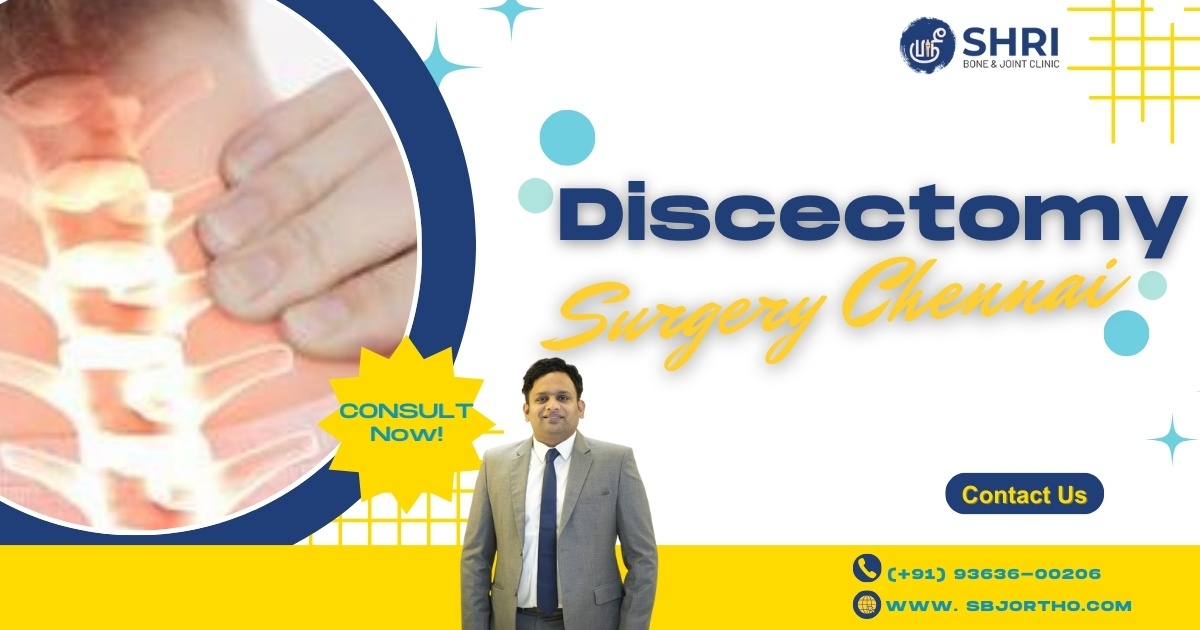
Which is the best Hospital for Discectomy in Chennai, India?
There are many Top Orthopedic Hospitals in Chennai, among which Shri Bone and Joint Clinic is renowned for its exceptional orthopedic care, particularly in discectomy procedures. Led by Dr. Shriram Krishnamoorthy, a National Board-certified orthopedic surgeon with over a decade of experience, the clinic specializes in a range of orthopedic treatments, including arthroscopy, complex fracture management, and joint replacement.
Patients seeking discectomy at Shri Bone and Joint Clinic can expect state-of-the-art facilities and a patient-centric approach. The clinic’s expertise in minimally invasive surgery techniques, such as micro-endoscopic discectomy (MED) and full endoscopic discectomy (FE), ensures that patients receive care tailored to their specific conditions, with a focus on faster recovery and minimal discomfort.
The clinic’s commitment to excellence is reflected in its comprehensive care, which extends from initial consultation to postoperative rehabilitation. Focusing on knee and shoulder replacement surgeries, arthroscopy, and cartilage preservation, Dr. Shriram Krishnamoorthy and his team are dedicated to providing personalized treatment plans that prioritize patient outcomes.
Who is the best surgeon for discectomy in Chennai, India?
Out of many Top Orthopedic Doctors in Chennai, Dr. Shriram Krishnamoorthy is a highly esteemed orthopedic surgeon based in Chennai, India, renowned for his expertise in discectomy procedures. With a National Board certification and extensive experience in orthopedics, Dr. Shriram Krishnamoorthy is an Orthopedic Specialist in Chennai who is well-regarded for his proficiency in joint replacements, sports injuries, and shoulder surgeries. His approach to patient care is holistic, focusing on clear communication and personalized treatment plans.
Patients appreciate his ability to explain complex medical conditions in understandable terms and his dedication to ensuring their comfort and satisfaction with treatment outcomes. His clinic, Shri Bone & Joint Clinic, is equipped with modern facilities and offers comprehensive services, including in-house X-ray and physiotherapy, making it a one-stop solution for patients seeking discectomy and other orthopedic treatments. His commitment to his patient’s well-being and his contributions to the field of orthopedics make him a top choice for those in need of spinal surgery in Chennai.
Cost of discectomy in Chennai, India
The cost of a discectomy in Chennai, India, varies depending on factors such as the hospital, surgeon’s fees, and the specific procedure used. The minimum cost starts from approximately ₹23,750, with average charges around ₹76,890. The maximum cost can rise up to ₹99,750. It is important to consult with healthcare providers for the most accurate and current pricing.
What lifestyle changes are recommended after a discectomy?
After a discectomy, it’s recommended to maintain good posture, engage in regular exercise programs, and ensure proper ergonomics at work and home to prevent further back injury or pain.
Can a discectomy relieve chronic back pain?
Yes, a discectomy can often provide relief from chronic back pain, especially when conservative measures have failed.
How can you prevent future spinal issues after a discectomy?
To prevent future spinal issues after a discectomy, engaging in regular exercise, maintaining a healthy weight, practicing good posture, and using proper body mechanics is important.
What is the cost of a discectomy in Chennai?
The cost of a discectomy in Chennai ranges from approximately ₹23,750 to ₹99,750, with the average cost around ₹76,890.
Better Health Care is Our Mission
Phone
Shri Bone & Joint clinic
#1, 2nd Main Road
Nehru Nagar
Adyar
Chennai - 20.
Phone: 044 3549 0206
MGM Healthcare
No.72,
Nelson Manickam Road,
Collectorate Colony, Aminjikarai,
Chennai - 600029.
Phone: 044 4524 2424
